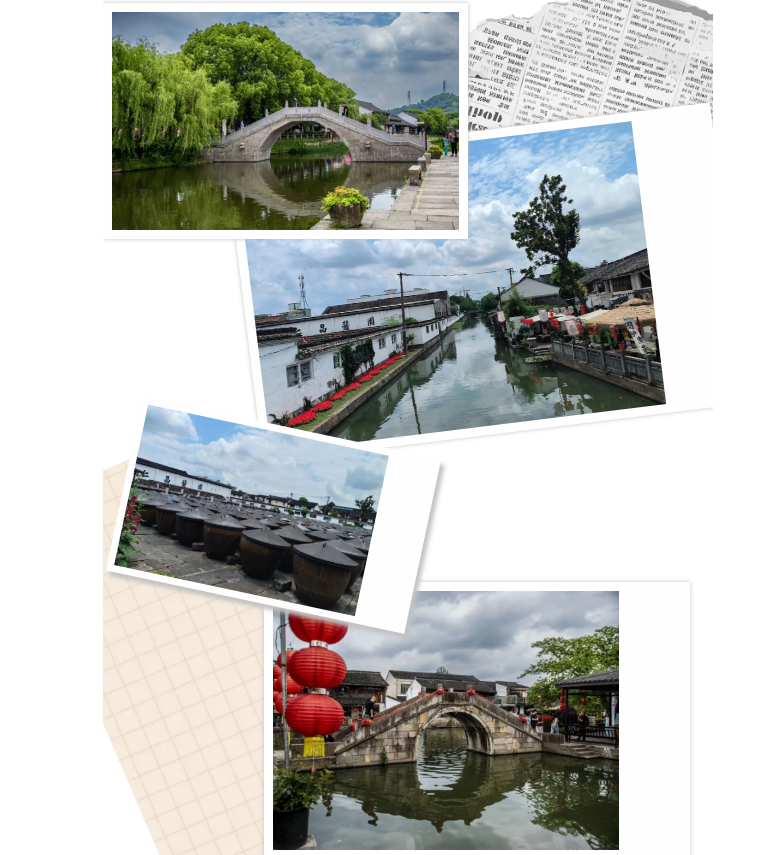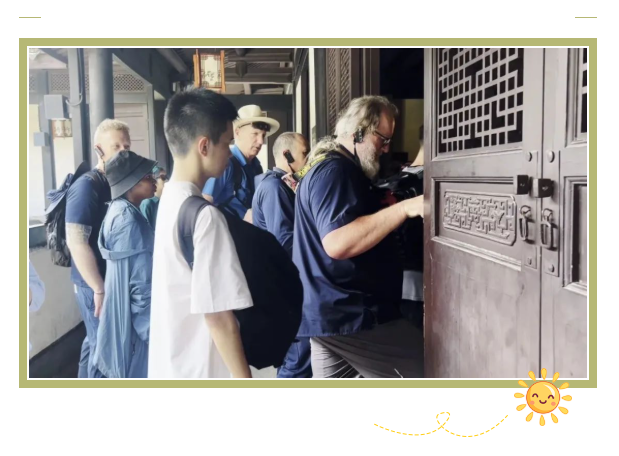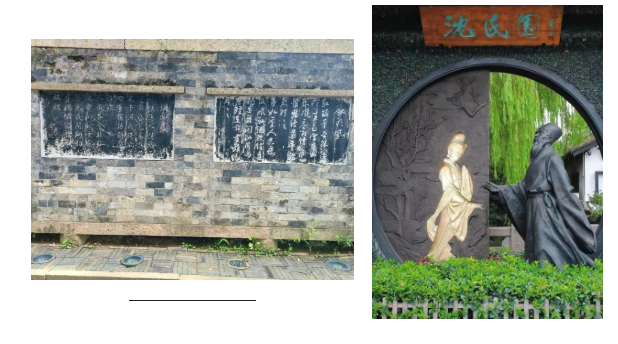Shaoxing Cultural Tour
2025-05-27 11:14
On May 17th, Haida organized a one-day cultural tour to Shaoxing for foreign teachers from various schools in Hangzhou. Over 20 international teachers embarked on a coach journey, accompanied by an English-speaking guide, immersing themselves in the history and vibrant local life of Jiangnan water towns. The itinerary featured four iconic cultural landmarks: Anchang Ancient Town, Lu Xun’s Hometown, Shen Garden, and Cangqiao Straight Street.
Around 10 a.m., the group arrived at this ancient town steeped in history. Along cobblestone paths, the aroma of cured meats hung in the air as artisans demonstrated traditional skills. During free exploration, teachers wandered under covered corridors, capturing snapshots of black-canopied boats gliding through canals and ripples beneath weathered stone bridges, immersing themselves in this "living museum of folklore".

In the afternoon, the teachers explored Lu Xun’s former residence, wandering through white-walled courtyards. The guide provided detailed explanations of Sanwei Study, Hundred Plants Garden, and museum exhibits—from architectural layouts to aged manuscripts—vividly illustrating Lu Xun’s creative journey and historical context. Teachers pondered over the brick courtyards and the iconic “早” (diligence) carved desk, delving into the literary giant’s legacy.

The Song-dynasty Shen Garden unfolded its poetic charm with pavilions, winding paths, and the engraved verses of The Phoenix Hairpin, narrating the tragic romance between Lu You and Tang Wan. Teachers gathered before the stone tablets, discussing the poignant refrain “Wrong, wrong, wrong!” in the poem, sparking cross-cultural reflections on love and destiny.

Around 5 p.m., the group delved into the Ming-Qing style street for an hour of free exploration. From crispy stinky tofu and fragrant yellow wine milk tea to chewy Shaoxing rice cakes, local delicacies painted a flavorful tapestry of the city’s culinary heritage.

On the return journey, teachers reflected how Shaoxing’s streets “unfold like a living scroll of history”, where every brick and tile echoes the profound bond between people and land in Chinese rural culture. Haida reiterated its mission to build cross-cultural bridges, enabling global educators to connect with China’s heritage.
